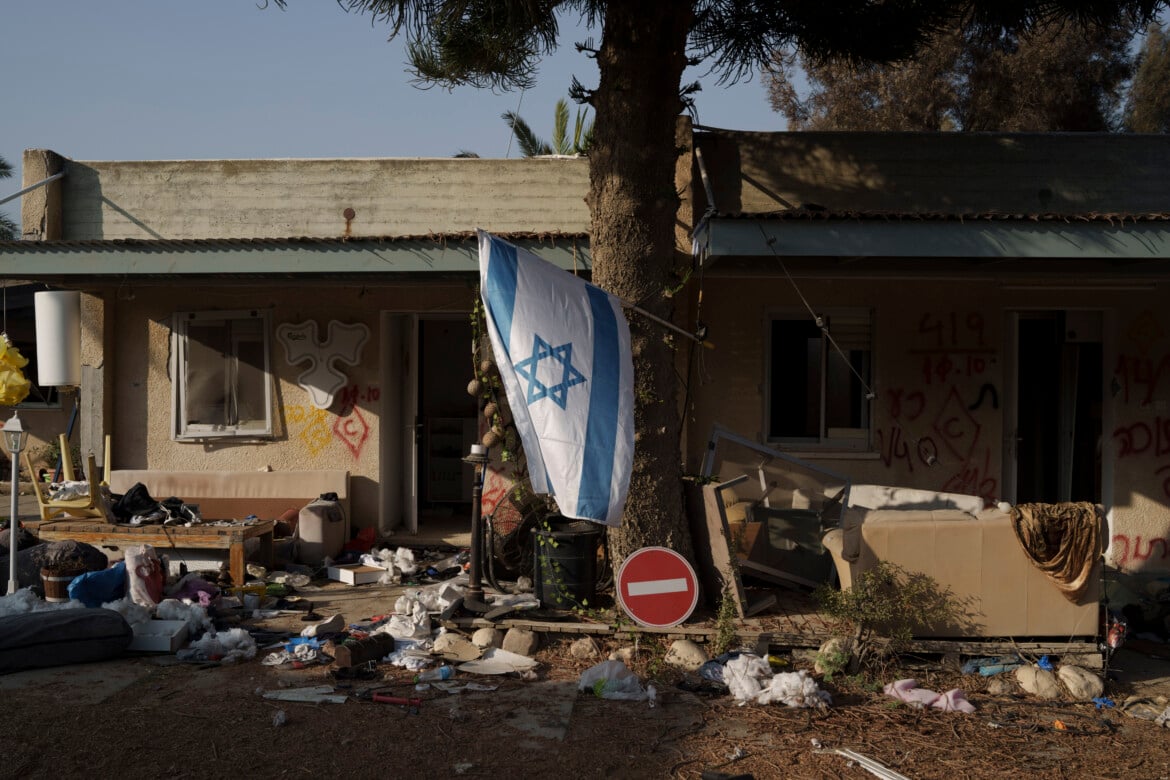Commentary
The memory of Oct. 7 is buried under 70,000 bodies
In the aftermath of the massacre, Israel received widespread solidarity. Today the narrative of the “most moral army in the world” gave way to that of the most ruthless, vengeful, and indiscriminate force.

What became of October 7, the memory of that bloody pogrom unleashed by Gaza militants two years ago against defenseless Israeli citizens? The most direct and immediate answer is that it has been buried under tens of thousands of dead and a mountain of rubble.
In the aftermath of the massacre, Israel received widespread solidarity. At the same time, in several countries, some left-wing activists, blinded by anti-Israel fanaticism, hailed the massacre as an act of liberation. On the other hand, even the slightest mention of the context of oppression in which that attack had developed – with no intent to justify it – was immediately branded as pro-terrorist anti-Semitism. Understandably, the gruesome nature of the militants’ raid didn’t leave any room for nuanced historical or political debates.
But what has changed after two years in global public opinion and in the relationship between Israel and its allies? Almost everything. Even the European governments closest to Tel Aviv eventually had to resort to the most hypocritical and disingenuous of expressions – “disproportionate reaction” – to euphemistically name the massacre of 70,000 people and the IDF’s immense devastation of the Gaza Strip. Netanyahu, in short, had simply “exaggerated.”
But there is a logic to this “exaggeration.” There is something in particular that the Israeli government wanted to bury at all costs through outrageously destructive action. And that was not the memory of Israel’s dead or the violence they suffered, but the memory of the government’s failure. It was the shattered myth of an infallible intelligence service and the world’s most efficient army, the supposed guarantor of unbreachable protection for its citizens. To this end – to redeem its ruling class, restore the prestige of its military supremacy and lend weight to its threats – the Israeli state chose to strike indiscriminately, everywhere. It razed cities, villages, and buildings, not only in Gaza and the West Bank but from Syria to Yemen, Lebanon and Iran. It chose to place itself outside and above every rule of international law and all reasonable moderation.
“Disproportionality” became the heart of Israeli policy, in service of a hegemonic and expansionist plan that has long ceased to have anything to do with the country’s security.
As the military operations expanded, the narrative with which they were presented also changed. The celebrations of the IDF’s ethical qualities, the sham investigations into gratuitous violence by soldiers, the talk of “surgical bombings” and care for civilian safety – all of it has vanished, partly because it was contradicted by the facts on the ground, culminating in the targeting of people waiting for food. The narrative of the “most moral army in the world” deliberately gave way to that of the most ruthless, vengeful, and indiscriminate force. Every Palestinian became a terrorist or an accomplice; every building was seen as “Hamas infrastructure.”
With this blatant change of tone, it became virtually impossible for much of Europe to silence the growing denunciations of war crimes, to repress the ever-larger demonstrations for Palestine, or to equate symbols and slogans with terrorism, as had been common during the first year of the war, especially in Italy and Germany. Even the accusation of anti-Semitism – initially leveled against any and all criticism of Israel’s actions, something that had managed to have a certain deterrent effect on the left – has been so abused and instrumentalized that it has lost its force. When you denounce the entire UN as a hotbed of anti-Semites, you cannot expect to be taken seriously. This is true even as a real resurgence of old and new anti-Semitic sentiments is being registered in Europe, at times among those who condemn Netanyahu's war but do so based on highly questionable anti-Jewish premises.
Meanwhile, Israel’s image and credibility have suffered further deadly blows. The enthusiastic embrace of Trump’s grotesque idea of transforming Gaza into a luxury riviera after its inhabitants were exterminated and deported was repugnant enough. One must also add the repeated pronouncements of the two far-right nationalist ministers propping up Netanyahu’s government – statements that no democratic state (even if just on a formal level) could tolerate. The European governments have tried to ignore these figures, who advocate for Jewish racial superiority and a divine right to exterminate enemies, so as not to be forced to sever ties with Israel. These are characters on a par with the cutthroats from ISIS and the Taliban, and who proudly flaunt their own ferocity.
Just as European governments are struggling more and more to salvage relations with this version of Israel, an impressive movement of solidarity with the Palestinians is growing across the continent. It is a movement that intersects with several other lines of conflict: the erosion of democratic space, rearmament, xenophobic nationalism, inequality, and the advance of new forms of fascism.
In terms of size and participation, this pro-Palestine movement has only one major precedent: the wave of protests across Germany after the far-right conference in Potsdam that planned for “remigration,” the mass deportation of foreigners. On closer inspection, there are quite a few points of affinity between these two movements in their shared anti-fascist and anti-supremacist spirit – a spirit that fights against the very idea of purity, social homogeneity and ethnic ownership of land that the Smotriches and Ben-Gvirs of the world share with European neo-Nazis.
Originally published at https://ilmanifesto.it/la-memoria-del-pogrom-seppellita-sotto-70mila-corpi on 2025-10-07
